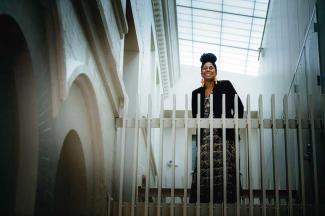The Carolyn Barber-Pierre Center for Intercultural Life and the Center for Academic Equity are now located in the Richardson Building on the Academic Quad on the uptown campus.
The Office of Multicultural Affairs and the Office of Gender and Sexual Diversity, along with Religious Life, were renamed the Carolyn Barber-Pierre Center for Intercultural Life to honor Barber-Pierre, assistant vice president for student affairs, who has worked at Tulane for more than three decades.
Paula Booke, director of the Center for Academic Equity, said, “Bringing the Center for Academic Equity, a part of Newcomb-Tulane College, and the Carolyn Barber-Pierre Center for Intercultural Life together creates a world of possibilities for our students.”
Barber-Pierre also was named a Tulane Trailblazer as part of an initiative established by Tulane President Michael Fitts to celebrate the contributions of people from diverse backgrounds who have made a substantial and lasting impact.
Barber-Pierre said that her longevity at Tulane is because of the students. “I have been inspired by young people who want so much to succeed.”
She said she was most passionate about creating an equitable experience for students of color, drawing from her own college experiences.
“I was an (undergraduate) student of color at a predominately white institution, and I knew some of the challenges that BIPOC [Black, Indigenous and people of color] students have. I wanted to work on creating a space that focused on providing services, advocacy and programming where they truly could feel that they were a part of this campus community,” she said. “To have alumni come back and say, ‘If it wasn’t for you, I would have never made it,’ for me, that’s more important than any title.”































































